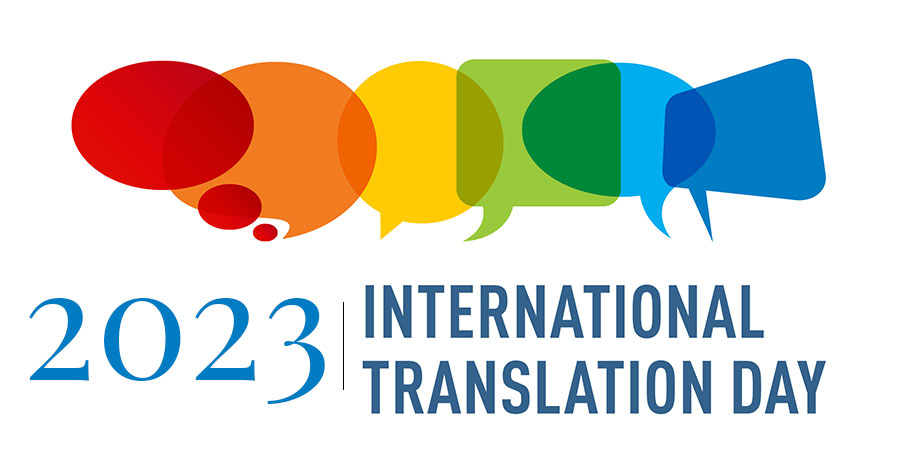Translating expressions of love and appreciation on Mother's Day across different languages is a delicate…
Unveiling the Impact of Translation and Interpretation Services in Africa

Are you faced with the challenge of breaking down language barriers for effective communication? Imagine trying to convey a crucial message to someone, only to be met with blank stares due to a linguistic mismatch.
The Importance of Expert Translation Services
Translation and interpretation services play a critical role in breaking down language barriers and facilitating communication across diverse communities, particularly on a continent as linguistically rich and diverse as Africa. Let’s delve deeper into the significance of expert translation services in various contexts:
Enhancing Cross-Cultural Communication
Expert translation services bridge communication gaps between individuals who speak different languages. Whether it’s in a business setting, healthcare environment, legal proceedings, or community interactions, accurate and culturally sensitive translation ensures that messages are conveyed effectively and meaningfully.
Improving Accessibility and Inclusivity
By providing language services such as simultaneous interpretation, consecutive interpretation, and on-site interpretation, expert translators enable individuals with limited English proficiency to access vital information and services. This, in turn, promotes inclusivity and ensures that everyone has equal opportunities to participate and engage in various activities.
Ensuring Clarity and Accuracy
Professional interpreters go beyond mere word-for-word translation; they possess the linguistic skills and cultural competence to convey subtle nuances and context-specific meanings accurately. This attention to detail is crucial in avoiding misinterpretations that could lead to misunderstandings or misinformation.
Building Trust and Confidence
When individuals receive information in their preferred language through expert translation services, they are more likely to trust the source and feel confident in the communication process. This trust forms the foundation for strong relationships between service providers, businesses, institutions, and the communities they serve.
Empowering the Global Economy
In today’s interconnected world, businesses, organizations, and governments rely on expert translation services to navigate international markets and engage with a global audience. By breaking language barriers and facilitating cross-border communication, translation services drive economic growth and foster international cooperation.
Types of Documents Requiring Translation Services in Africa
In the realm of translation services, various types of documents necessitate linguistic expertise to ensure accurate and seamless communication across different languages. Understanding the specific document types that typically require translation services is crucial for individuals and organizations seeking to bridge language barriers effectively.
Legal Documents
Legal documents such as contracts, agreements, court orders, and patents often require translation services to maintain the intended legal meaning across language boundaries. Professional interpreters with legal expertise are essential to ensuring precise and legally binding translations.
Medical Records
Medical records, discharge summaries, prescriptions, and healthcare-related documents are critical for providing appropriate care to patients with limited English proficiency. Accurate translation of medical terminology is vital to ensure effective communication between healthcare providers and patients.
Business Correspondence
Business documents like emails, reports, marketing materials, and financial statements often need translation services for successful communication with global clients and partners. Quality translation preserves the professionalism and integrity of the content.
Educational Materials
Academic transcripts, certificates, diplomas, and educational materials require accurate translation to facilitate international academic exchanges and admissions. Certified translators proficient in academic terminology play a key role in ensuring accurate translations.
Government Documents
Official government documents, including passports, visas, birth certificates, and immigration forms, often need translation services for individuals navigating legal processes in new countries. Adhering to standardized procedures helps maintain the authenticity and legality of translated government documents.
Cultural Literature
Literary works, poems, novels, and cultural texts demand careful translation to preserve the nuances and artistic expressions of the original language. Translators with a deep understanding of cultural contexts play a significant role in capturing the essence of literary works in different languages.
Understanding Certified Translations
Certified translations play a crucial role in ensuring accuracy and reliability in cross-cultural communication. Let’s delve deeper into what certified translations entail and why they are essential in various contexts.
What Are Certified Translations and why they are important?
Certified translations are translations that come with a signed statement or certificate attesting to the accuracy and completeness of the translated content. These translations are typically done by professional translators who are specifically qualified to provide such services.
Legal and Official Documents: Certified translations are commonly required for legal documents such as birth certificates, marriage certificates, contracts, and court documents. They ensure that the translated content is considered valid and legally binding.
Accuracy and Consistency: Certified translations guarantee that the content accurately reflects the original document, maintaining consistency in terminology and format.
Professionalism and Credibility: Having a certified translation adds a layer of professionalism and credibility to the content, especially in business or academic settings.
Regulatory Compliance: In regulated industries such as healthcare, finance, and government, certified translations may be necessary to comply with specific regulations or standards.
The Process of Obtaining a Certified Translation
Selecting a Qualified Provider: When seeking a certified translation, it’s essential to choose a reputable language service provider with experienced and qualified translators.
Submitting Documents: You will need to provide the original document to the translation service for them to create a certified translation.
Review and Approval: A certified professional translator completes, checks the translation for accuracy, and signs it.
Factors Influencing Turnaround Time for Translation Services
When it comes to translation services, the turnaround time is a critical aspect that can significantly impact the overall effectiveness of the communication process. Several key factors influence the speed and efficiency of translation services, ensuring that your message is accurately conveyed in a timely manner.
Complexity of the Content
The complexity of the content plays a vital role in determining the turnaround time for translation services. Highly technical or specialized content may require more time for translation compared to general or straightforward material. Factors such as industry-specific terminology, legal jargon, or medical information can all contribute to increased translation time.
Language Pair
The specific language pair being translated is another crucial factor affecting turnaround time. The availability of qualified translators and the complexity of the language structure can influence how quickly a translation can be completed. Languages with fewer qualified translators may result in longer turnaround times.
Quality of the Source Material
The quality of the source material provided for translation can impact how efficiently the process is completed. Well-written and organized content is easier to translate accurately and quickly. In contrast, poorly written or ambiguous source material may necessitate additional time for clarification and interpretation.
Volume of the Content
The amount of content that needs to be translated is a significant factor in determining turnaround time. Large volumes of text require more time to translate thoroughly and accurately. Translators need adequate time to ensure the quality and consistency of the translation across all sections of the document.
Client Communication and Feedback
Effective communication between the client and the translation service provider is essential for a streamlined process. Clear instructions, feedback, and collaboration can help expedite the translation process and ensure that any revisions or adjustments are made promptly. Timely feedback from the client can prevent delays and improve the overall turnaround time.
How to Choose the Right Translation Company
When looking to choose the right translation company for your needs, several key factors come into play. It’s essential to consider the following aspects to ensure that you make an informed decision:
Determine Your Specific Requirements
Before selecting a translation company, assess your specific needs. Do you require simultaneous interpretation for live events, consecutive interpretation for one-on-one settings, or perhaps on-site interpretation for in-person meetings? Understanding your requirements will help narrow down your search for the right provider.
Assessing Language Services Offered
Look for a translation company that offers a wide range of language services to cater to diverse needs. Ensure they can handle the language pair you need, whether it’s bridging a language barrier through spoken word interpretation or providing phone interpretation services. A professional interpreter should be able to proficiently translate in both directions to facilitate effective communication.
Quality and Expertise of Interpreters
Quality is paramount when it comes to translation and interpretation services. Verify that the company employs qualified interpreters who are fluent in the languages you require. A successful translation hinges on the skills and expertise of the interpreters involved, so make sure they have the necessary credentials and experience.
Cultural Understanding and Sensitivity
Cultural understanding is crucial in translation and interpretation services. Ensure that the company prioritizes cultural sensitivity and has a deep understanding of the nuances of various languages and cultures. This is particularly important when working with diverse populations, such as residents of Queens who may have preferred languages other than English.
Service Accessibility and Delivery
Consider the accessibility of the services offered by the translation company. Whether it’s on-site interpretation, phone call interpretation, or document translation, make sure they can meet your needs promptly and efficiently. Accessibility is key, especially in sectors like healthcare where effective communication can impact patient care significantly.
Cost-Effectiveness and Value
While cost is a factor, prioritize value over price when choosing a translation company. Look for a provider that offers outstanding language access services at competitive rates. Consider whether the company follows standardized procedures and offers cost-effective solutions without compromising quality.
Different Modes of Translation: Written and Interpretation
When it comes to translation and interpretation services, there are various modes available to cater to different needs and scenarios. In the context of Africa, where language diversity is abundant, understanding the various modes of translation is crucial for effective communication.
Written Translation
Written translation involves the conversion of text from one language to another. It is commonly used for documents, websites, marketing materials, legal contracts, and more. Professional translators ensure accuracy, cultural nuances, and context preservation in written content.
Interpretation Services
- Simultaneous Interpretation: This mode of interpretation is commonly used in conferences, speeches, and live events where the interpreter translates the spoken word in real time. It requires specialized equipment and highly skilled interpreters to maintain pace and accuracy.
- Consecutive Interpretation: In this mode, the interpreter speaks after the original speaker has finished a segment of speech. This is often used in smaller group settings, meetings, or interviews where immediate translation is not essential.
- On-site Interpretation: On-site interpretation involves an interpreter physically present at the location where translation services are needed. This mode is beneficial for events, business meetings, medical appointments, and legal proceedings.
- Phone Interpretation: Phone interpretation provides quick and convenient language services remotely. It is useful for spontaneous conversations, customer support, emergency situations, and healthcare consultations.
Quality Control in Translation Services
Translation services play a crucial role in breaking down language barriers and facilitating effective communication across diverse populations. To ensure the highest standards in translation accuracy and reliability, quality control measures are essential.
Establishing Certified Providers
Certification of translators and interpreters is a fundamental quality control measure. Working with certified professionals ensures that the translation service provider meets specific industry standards and possesses the necessary skills and expertise to deliver accurate translations.
Rigorous Proofreading and Editing
Thorough proofreading and editing are essential steps in maintaining the quality of translated content. This process involves reviewing the translated text for accuracy, grammar, and style to ensure consistency and coherence in the final output.
Utilizing Translation Memory Tools
Translation memory tools aid in maintaining consistency in terminology and style across various translations. These tools store previously translated segments for reference, which helps in speeding up the translation process and maintaining accuracy.
Cultural Adaptation and Localization
Cultural understanding is vital in translation services to ensure that the translated content is contextually relevant and culturally appropriate for the target audience. Localization involves adapting the content to suit the cultural nuances and preferences of the local audience.
Client Feedback and Review
Client feedback plays a crucial role in quality control, allowing for continuous improvement and refinement of translation services. Regular reviews and feedback mechanisms help service providers address any issues or concerns raised by clients promptly.



